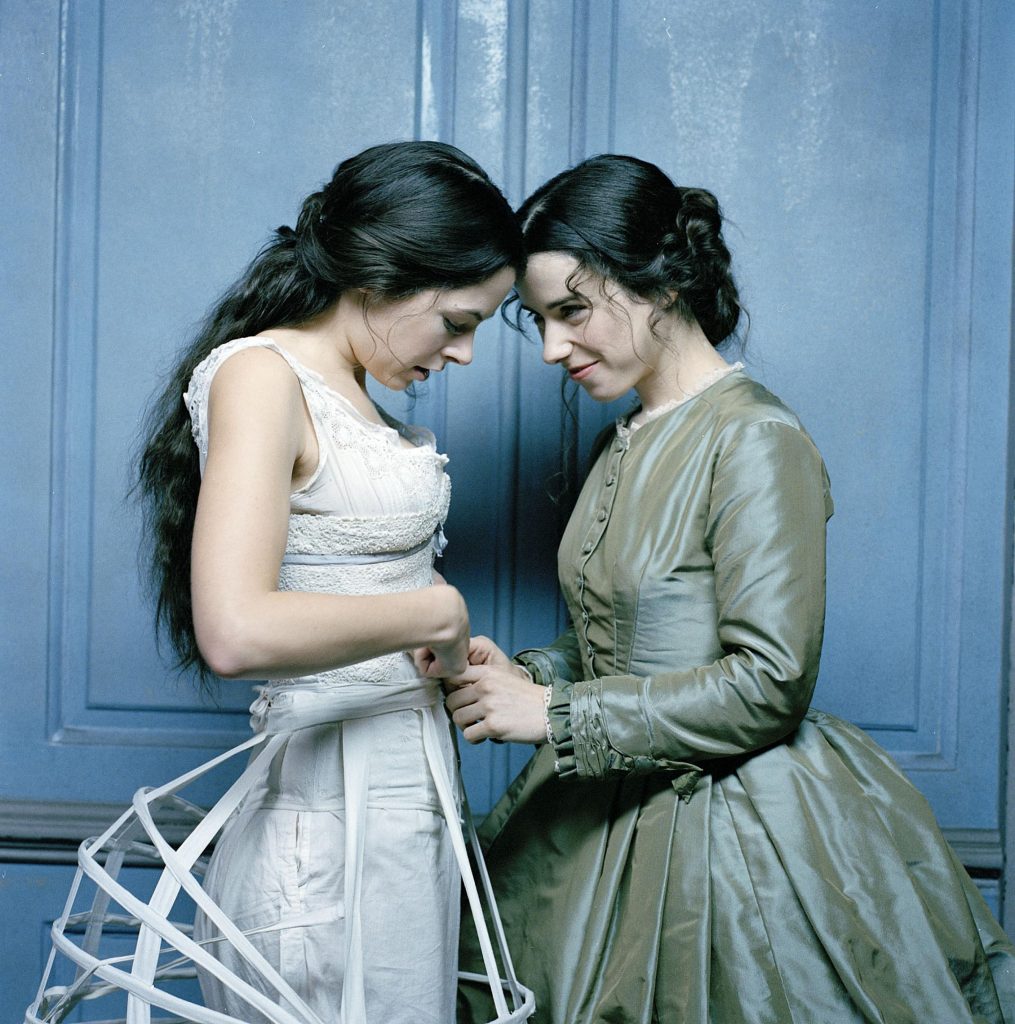

The fourth adaptation, The Night Watch, a chronologically reversed story set in the second world war, reflected the shift in her writing to more nuanced and sombre worlds. Four of her novels have been adapted for television and in the three Victorian romps – including Fingersmith – she made cameo appearances. “One of the nice things about adaptations is it gives you a chance to revisit the story and characters,” she says. When I pull an old paperback of Fingersmith out of my bag she looks surprised and says, “It’s very big, isn’t it?” It takes a few seconds for the significance of this to sink in “I’ve never reread it,” she admits, adding that the only one of her six novels that she has reread is Tipping the Velvet “and all I wanted to do was tidy it up”. Kim Min-hee and Kim Tae-ri in The Handmaiden (2016). Where Fingersmith is full of bodices and petticoats, the softest leather and the most lustrous silks, its author is most likely to be found in jeans. At 50, with six novels to her name, she lives the quiet life of a professional novelist in south London with her partner of many years, Lucy Vaughan.


In person, Waters seems about as far from madness and mayhem as it is possible to be. It’s more Greek myth.” Fingersmith, she points out, is excessive too, with its roots in “those Victorian novels about murder and madness and mayhem”. “I loved it because it was so gloriously excessive. She was involved in selling the film rights along with the company that had made a well-received three-part TV adaptation, and steeled herself to find out what she would be letting herself in for by watching Park’s 2003 revenge tragedy Oldboy. Waters herself concedes that “it seemed a slightly mind-boggling idea”. In the novel, the pickpocket Sue is lured away from a bustling thieves’ kitchen in London to the countryside with the promise of a share in a soon-to-be-stolen fortune in the film, seamstress Sook-hee is hustled off into a rainstorm on an undeclared mission at the house of a rich Japanese recluse, leaving a wailing chorus of women and babies huddled beneath the eaves of their roadside shack.įans of the novel might well wonder how Waters’ richly verbal story of lesbian sexuality – a gasp of release from the sensuously evoked corsetry of Victorian female propriety – could survive this transformation, and not least because the director is a man, with a reputation for making macho films of extravagant violence. The Handmaiden transports the story from Victorian England to Korea in the 1930s, when the peninsula was occupied by Japan. Now it has been reimagined in film by Korean director Park Chan-wook, who has defied differences in culture, gender and media to create a complementary classic of erotic cinema. Published in 2002, Fingersmith is a story of deception involving a pickpocket, a conman, a pornographer and an heiress.


 0 kommentar(er)
0 kommentar(er)
